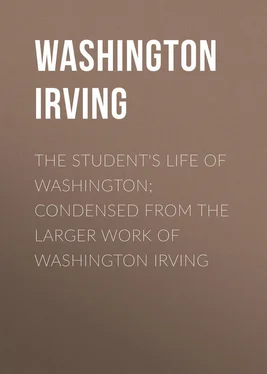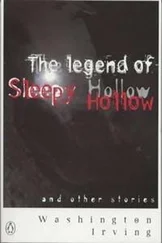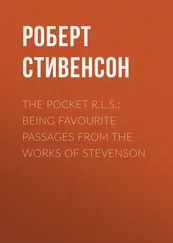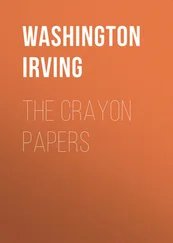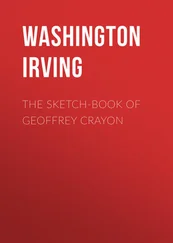Washington Irving - The Student's Life of Washington; Condensed from the Larger Work of Washington Irving
Здесь есть возможность читать онлайн «Washington Irving - The Student's Life of Washington; Condensed from the Larger Work of Washington Irving» — ознакомительный отрывок электронной книги совершенно бесплатно, а после прочтения отрывка купить полную версию. В некоторых случаях можно слушать аудио, скачать через торрент в формате fb2 и присутствует краткое содержание. Издательство: Иностранный паблик, Жанр: literature_19, foreign_antique, foreign_prose, на английском языке. Описание произведения, (предисловие) а так же отзывы посетителей доступны на портале библиотеки ЛибКат.
- Название:The Student's Life of Washington; Condensed from the Larger Work of Washington Irving
- Автор:
- Издательство:Иностранный паблик
- Жанр:
- Год:неизвестен
- ISBN:нет данных
- Рейтинг книги:3 / 5. Голосов: 1
-
Избранное:Добавить в избранное
- Отзывы:
-
Ваша оценка:
- 60
- 1
- 2
- 3
- 4
- 5
The Student's Life of Washington; Condensed from the Larger Work of Washington Irving: краткое содержание, описание и аннотация
Предлагаем к чтению аннотацию, описание, краткое содержание или предисловие (зависит от того, что написал сам автор книги «The Student's Life of Washington; Condensed from the Larger Work of Washington Irving»). Если вы не нашли необходимую информацию о книге — напишите в комментариях, мы постараемся отыскать её.
The Student's Life of Washington; Condensed from the Larger Work of Washington Irving — читать онлайн ознакомительный отрывок
Ниже представлен текст книги, разбитый по страницам. Система сохранения места последней прочитанной страницы, позволяет с удобством читать онлайн бесплатно книгу «The Student's Life of Washington; Condensed from the Larger Work of Washington Irving», без необходимости каждый раз заново искать на чём Вы остановились. Поставьте закладку, и сможете в любой момент перейти на страницу, на которой закончили чтение.
Интервал:
Закладка:
In Virginia the public discontents, which had been allayed by the conciliatory conduct of Lord Botetourt, and by his assurances, made on the strength of letters received from the ministry, that the grievances complained of would be speedily redressed, now broke out with more violence than ever. The Virginians spurned the mock-remedy which left the real cause of complaint untouched. His lordship also felt deeply wounded by the disingenuousness of ministers which had led him into such a predicament, and wrote home demanding his discharge. Before it arrived, an attack of bilious fever, acting upon a delicate and sensitive frame, enfeebled by anxiety and chagrin, laid him in his grave. He left behind him a name endeared to the Virginians by his amiable manners, his liberal patronage of the arts, and, above all, by his zealous intercession for their rights.
CHAPTER XIV.
EXPEDITION TO THE OHIO. – TEA TAX
In the midst of these popular turmoils, Washington was induced, by public as well as private considerations, to make another expedition to the Ohio. He was one of the Virginia Board of Commissioners, appointed at the close of the late war to settle the military accounts of the colony. Among the claims which came before the board were those of the officers and soldiers who had engaged to serve until peace, under the proclamation of Governor Dinwiddie, holding forth a bounty of two hundred thousand acres of land, to be apportioned among them according to rank. Those claims were yet unsatisfied. Washington became the champion of those claims, and an opportunity now presented itself for their liquidation. The Six Nations, by a treaty in 1768, had ceded to the British crown, in consideration of a sum of money, all the lands possessed by them south of the Ohio. Land offices would soon be opened for the sale of them. Washington determined at once to visit the lands thus ceded; affix his mark on such tracts as he should select, and apply for a grant from government in behalf of the "soldiers' claim."
Washington had for a companion in this expedition his friend and neighbor, Dr. Craik. They set out on the 5th of October with three negro attendants, two belonging to Washington, and one to the doctor. The whole party was mounted, and there was a led horse for the baggage. After twelve days' travelling they arrived at Fort Pitt (late Fort Duquesne). It was garrisoned by two companies of royal Irish, commanded by a Captain Edmonson. A hamlet of about twenty log-houses, inhabited by Indian traders, had sprung up within three hundred yards of the fort, and was called "the town." It was the embryo city of Pittsburg, now so populous. At one of the houses, a tolerable frontier inn, they took up their quarters; but during their brief sojourn they were entertained with great hospitality at the fort. Here at dinner Washington met his old acquaintance, George Croghan, who had figured in so many capacities and experienced so many vicissitudes on the frontier. He was now Colonel Croghan, deputy-agent to Sir William Johnson.
On the day following the repast at the fort, Washington visited Croghan at his abode on the Alleghany River, where he found several of the chiefs of the Six Nations assembled. One of them, the White Mingo by name, made him a speech, accompanied, as usual, by a belt of wampum.
At Pittsburg the travellers left their horses, and embarked in a large canoe, to make a voyage down the Ohio as far as the Great Kanawha. Colonel Croghan engaged two Indians for their service, and an interpreter named John Nicholson. The colonel and some of the officers of the garrison accompanied them as far as Logstown, the scene of Washington's early diplomacy, and his first interview with the half-king. Here they breakfasted together; after which they separated, the colonel and his companions cheering the voyagers from the shore, as the canoe was borne off by the current of the beautiful Ohio.
Washington's propensities as a sportsman had here full play. Deer were continually to be seen coming down to the water's edge to drink, or browsing along the shore; there were innumerable flocks of wild turkeys, and streaming flights of ducks and geese; so that as the voyagers floated along, they were enabled to load their canoe with game. At night they encamped on the river bank, lit their fire and made a sumptuous hunter's repast. About seventy-five miles below Pittsburg the voyagers landed at a Mingo town, which they found in a stir of warlike preparation – sixty of the warriors being about to set off on a foray into the Cherokee country against the Catawbas.
On the 24th, about three o'clock in the afternoon, they arrived at Captema Creek, and two days more of voyaging brought them to an Indian hunting camp, near the mouth of the Muskingum. Here it was necessary to land and make a ceremonious visit, for the chief of the hunting party was Kiashuta, a Seneca sachem, the head of the river tribes. He was noted to have been among the first to raise the hatchet in Pontiac's conspiracy, and almost equally vindictive with that potent warrior. As Washington approached the chieftain, he recognized him for one of the Indians who had accompanied him on his mission to the French in 1753. Kiashuta retained a perfect recollection of the youthful ambassador, though seventeen years had matured him into thoughtful manhood. With hunter's hospitality he gave him a quarter of a fine buffalo just slain, but insisted that they should encamp together for the night.
At the mouth of the Great Kanawha the voyagers encamped for a day or two to examine the lands in the neighborhood, and Washington set up his mark upon such as he intended to claim on behalf of the soldiers' grant. Here Washington was visited by an old sachem, who approached him with great reverence, at the head of several of his tribe, and addressed him through Nicholson, the interpreter. He had heard, he said, of his being in that part of the country, and had come from a great distance to see him. On further discourse, the sachem made known that he was one of the warriors in the service of the French, who lay in ambush on the banks of the Monongahela and wrought such havoc in Braddock's army. He declared that he and his young men had singled out Washington, as he made himself conspicuous riding about the field of battle with the general's orders, and had fired at him repeatedly, but without success; whence they had concluded that he was under the protection of the Great Spirit, had a charmed life, and could not be slain in battle. At the Great Kanawha Washington's expedition down the Ohio terminated; having visited all the points he wished to examine. His return to Fort Pitt, and thence homeward, affords no incident worthy of note.
The discontents of Virginia, which had been partially soothed by the amiable administration of Lord Botetourt, were irritated anew under his successor, the Earl of Dunmore. This nobleman had for a short time held the government of New York. When appointed to that of Virginia, he lingered for several months at his former post. In the meantime he sent his military secretary, Captain Foy, to attend to the despatch of business until his arrival; awarding to him a salary and fees to be paid by the colony. The pride of the Virginians was piqued at his lingering at New York, as if he preferred its gayety and luxury to the comparative quiet and simplicity of Williamsburg. The first measure of the Assembly, at its opening, was to demand by what right he had awarded a salary and fees to his secretary without consulting it; and to question whether it was authorized by the crown. His lordship had the good policy to rescind the unauthorized act, and in so doing mitigated the ire of the Assembly: but he lost no time in proroguing a body which, from various symptoms, appeared to be too independent, and disposed to be untractable.
He continued to prorogue it from time to time, seeking in the interim to conciliate the Virginians, and soothe their irritated pride. At length, after repeated prorogations he was compelled by circumstances to convene it on the 1st of March, 1773. Washington was prompt in his attendance on the occasion, and foremost among the patriotic members who eagerly availed themselves of this long wished for opportunity to legislate upon the general affairs of the colonies. One of their most important measures was the appointment of a committee of eleven persons, "whose business it should be to obtain the most clear and authentic intelligence of all such acts and resolutions of the British Parliament, or proceedings of administration, as may relate to or affect the British colonies, and to maintain with their sister colonies a correspondence and communication." The plan thus proposed by their "noble, patriotic sister colony of Virginia" was promptly adopted by the people of Massachusetts, and soon met with general concurrence. These corresponding committees, in effect, became the executive power of the patriot party, producing the happiest concert of design and action throughout the colonies.
Читать дальшеИнтервал:
Закладка:
Похожие книги на «The Student's Life of Washington; Condensed from the Larger Work of Washington Irving»
Представляем Вашему вниманию похожие книги на «The Student's Life of Washington; Condensed from the Larger Work of Washington Irving» списком для выбора. Мы отобрали схожую по названию и смыслу литературу в надежде предоставить читателям больше вариантов отыскать новые, интересные, ещё непрочитанные произведения.
Обсуждение, отзывы о книге «The Student's Life of Washington; Condensed from the Larger Work of Washington Irving» и просто собственные мнения читателей. Оставьте ваши комментарии, напишите, что Вы думаете о произведении, его смысле или главных героях. Укажите что конкретно понравилось, а что нет, и почему Вы так считаете.
